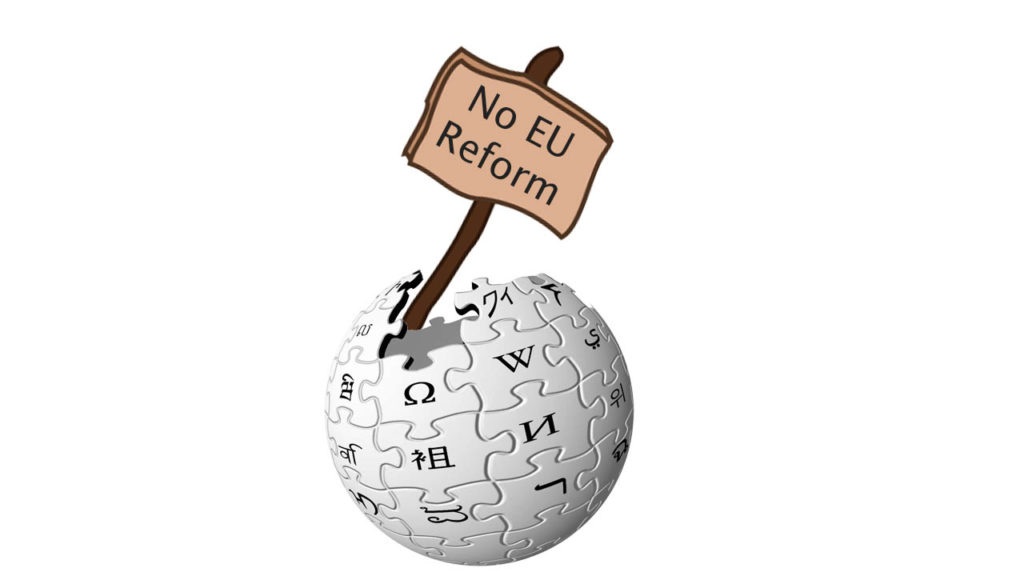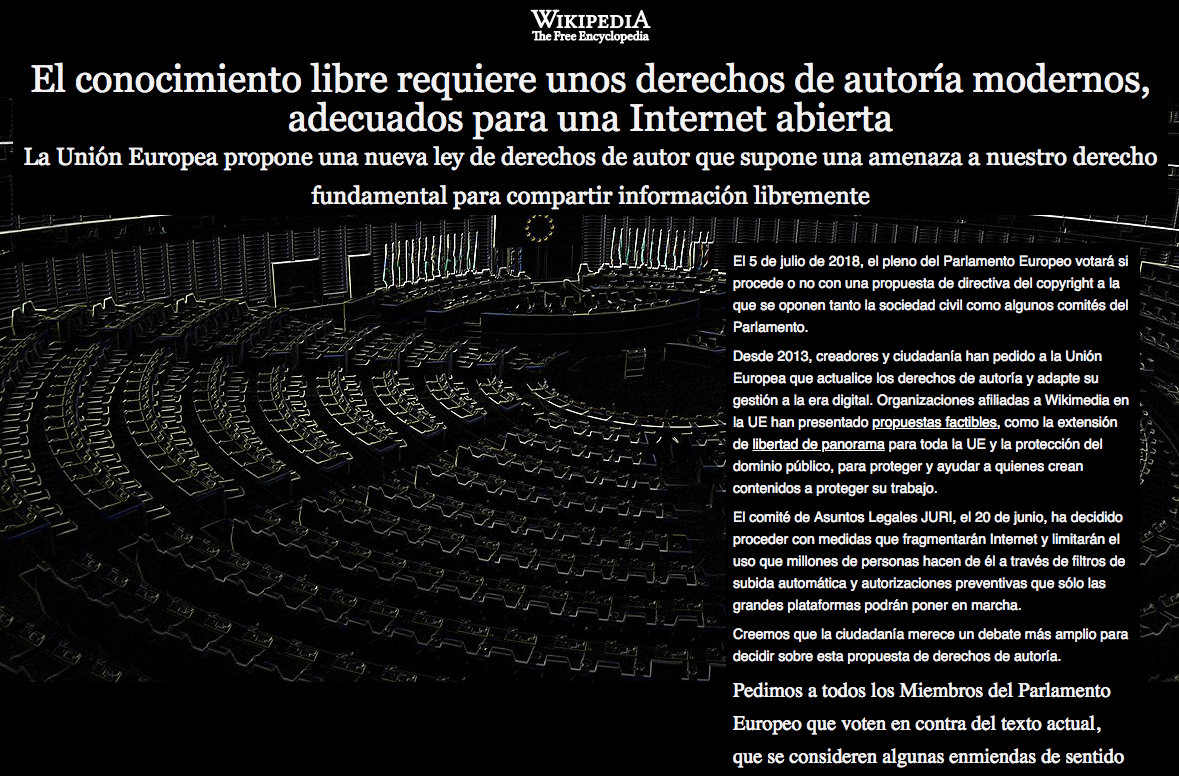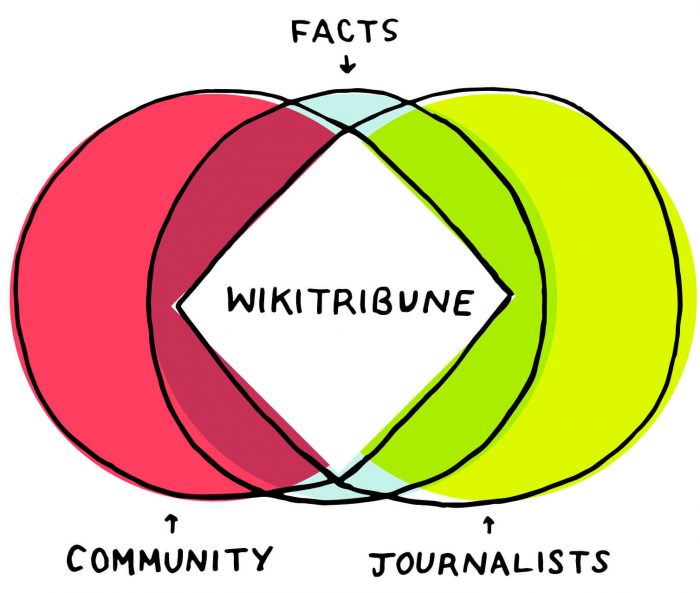Wikipedia is down in a number of countries across Europe. Fact hunters and quiz night cheats in Spain, Italy, and Poland will be without their number one resource the next day or two. The Wikipedia outage, however, is not the consequence of some malware attack, but rather a deliberate protest. The desperate act is to protest a new EU law, which goes to vote today, July 5.

The law in question is Article 13 of an upcoming digital copyright reform package, which aims to prohibit:
“Use of protected content by online content sharing service providers.”
This law will make sites like Wikipedia responsible and directly liable if any users post copyrighted content on the platform. This would mean to protect themselves the platforms would have to set up filters that would monitor all content uploads. In effect, forcing sites like Wikipedia to create giant censorship machines to protect themselves from possible Intellectual Property violations.

EU Wikipedia users are met by a page resembling the image above. They’re invited to defend the open internet by contacting their MEP through the site saveyourinternet.eu. If you’re living inside the EU, you can head straight to that website now to find out the contact details of your MEP.
This may be illegal under #Article13. If just one of the four images is copyrighted, Twitter would be compelled to take this picture off. #Article13 #forDummies https://t.co/aSbYoiPDm0
— Ziga Turk (@ZigaTurkEU) June 12, 2018
The stark implications of Article 13 have been laid clear across social media, with many claiming that the EU plans to make memes illegal. All it takes is for a single image used to create a meme to be copyrighted and whichever platform is hosting the meme; be it Wikipedia, Twitter, Reddit, etc. will be liable for breaching the copyright. Memes then, and any other types of post that include copyrighted images or text will be swallowed up by the filters designed to protect the platforms from being sued.
Article 11 of the same reform package is also heavily criticized as it would make it much more difficult for news to spreads across the internet. It would create rights for quotes of journalistic content, which some are dubbing a “link tax.”

Dark Web version puts Wikipedia in the hands of people living in internet censored regions
Read nowTaking down the Wikipedia pages in Spain, Italy, and Poland is a direct challenge to Article 13 and Article 11. In a letter to visitors in Spain the Wikipedia community in Spain writes:
“If the proposal were approved in its current version, actions such as sharing a news item on social networks or accessing it through a search engine would become more complicated on the Internet; Wikipedia itself would be at risk… We want to continue offering an open, free, collaborative and free work with verifiable content. We call on all members of the European Parliament to vote against the current text, to open it up for discussion and to consider the numerous proposals of the Wikimedia movement to protect access to knowledge; among them, the elimination of articles 11 and 13, the extension of the freedom of panorama to the whole EU and the preservation of the public domain”
If #Article13 passes it will change the way that the Internet works, from free and creative sharing, to one where anything can be instantly removed, by computers. #CensorshipMachine https://t.co/QgcUmCabEH pic.twitter.com/UOIZwxRFWh
— Open Rights Group (@OpenRightsGroup) June 28, 2018
In essence, then, the Wikipedia protests in Spain, Poland, and Italy mark a fight to protect the internet as we know it today. All of those annoying GDPR emails you received last month were the result of EU legislation. The EU is a regulation superpower. The amount of people that fall under EU regulation makes it impossible for global companies to ignore. Rather than splitting their online products, it makes more financial sense to roll out reforms across their global platforms. This might be an EU reform, but there is a strong chance that it will affect everybody.

Wikipedia wants to Tackle Fake News
Learn moreWith so much at stake then, maybe we should be asking ourselves why other platforms aren’t taking such strong actions like the Spanish, Italian, and Polish are to protest the EU copyright reform?

